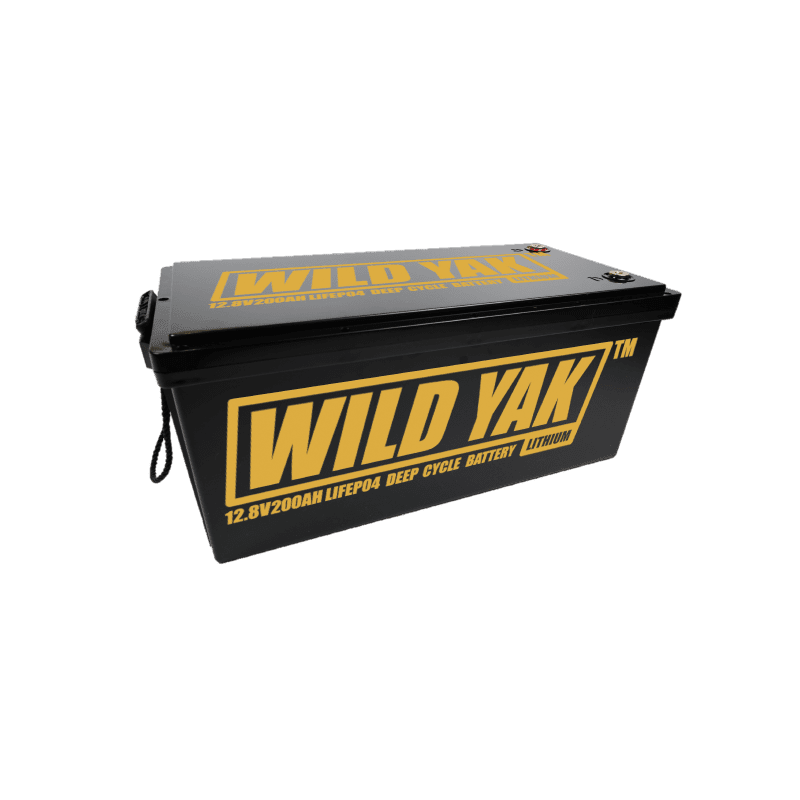Lithium Battery Storage Tips for Winter: Expert Advice by Wild Yak Battery
Introduction
As winter approaches, protecting your lithium batteries becomes a priority—especially if you rely on them for RVs, marine applications, or renewable energy storage. Cold temperatures can affect battery performance and lifespan if not stored properly. In this comprehensive guide, we share practical lithium battery storage tips for winter to help you maintain optimal performance and safety. We’ll also explain how Wild Yak Battery’s high-quality models—12V 100Ah, 12V 200Ah, and 24V 100Ah—are engineered to withstand harsh conditions and deliver reliable power all year round.
Why Proper Winter Storage Matters
Lithium batteries, particularly those using LiFePO4 technology, are designed for durability, but extreme cold can still pose challenges:
- Reduced Efficiency: Lower temperatures can slow down chemical reactions inside the battery, temporarily reducing capacity.
- Potential Damage: Improper storage can lead to cell imbalance or irreversible degradation over time.
- Safety Risks: Cold environments may affect the Battery Management System (BMS), making it essential to store batteries under controlled conditions.
Proper winter storage ensures that your batteries maintain their longevity and performance, ready to deliver power when you need it most.
Essential Lithium Battery Storage Tips for Winter
1. Store in a Controlled Environment
- Moderate Temperature: Aim to store your batteries in an insulated space where temperatures remain above freezing. A temperature range of 32°F to 68°F (0°C to 20°C) is ideal.
- Avoid Extreme Fluctuations: Consistent temperatures help prevent internal stress on the battery cells.
2. Charge to the Recommended Level
- Optimal Charge Level: For long-term storage, keep your lithium batteries at around 40-60% charge. This helps prevent deep discharge while avoiding overcharge, which can be detrimental in cold conditions.
- Regular Monitoring: Check the battery’s state of charge periodically during the winter months.
3. Use a Suitable Charger and Battery Management System (BMS)
- Dedicated Chargers: Ensure you use a charger compatible with LiFePO4 batteries, as this will maintain proper charging profiles even during colder periods.
- Integrated BMS: Wild Yak Battery products come equipped with an advanced BMS that helps balance cell voltage and provides temperature compensation to safeguard performance.
4. Protect Against Moisture
- Dry Environment: Store batteries in a dry location to prevent condensation, which could lead to corrosion or short circuits.
- Sealed Containers: If storing in a garage or shed, consider using protective covers or containers to minimize exposure to humidity.
5. Periodic Inspections
- Visual Checks: Regularly inspect batteries for any signs of damage, corrosion, or leakage.
- Performance Testing: Periodically test the battery’s voltage and capacity to ensure it remains within the expected range.
Wild Yak Battery: Engineered for Extreme Conditions
Wild Yak Battery’s lithium solutions are designed with both performance and durability in mind. Whether you choose the 12V 100Ah, 12V 200Ah, or 24V 100Ah model, our batteries incorporate features that make them well-suited for varying temperatures:
- Robust Battery Management Systems (BMS): Ensure balanced charging and provide protection against overcharge, deep discharge, and temperature extremes.
- Enhanced Construction: Engineered for rugged environments, Wild Yak Battery models deliver reliable power even in challenging conditions.
- Efficiency and Longevity: Optimized for high cycle life, our batteries remain effective throughout winter storage and beyond.
Conclusion
Proper winter storage is essential to protect your lithium batteries and ensure they perform optimally when you need them. By following these lithium battery storage tips for winter, you can safeguard your investment and extend the life of your power system. Whether for RVs, marine applications, or solar backup, Wild Yak Battery’s advanced models—12V 100Ah, 12V 200Ah, and 24V 100Ah—offer the reliability and durability to withstand even the coldest months. Prepare now, store smart, and power through winter with confidence.

